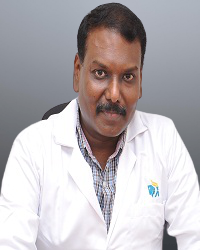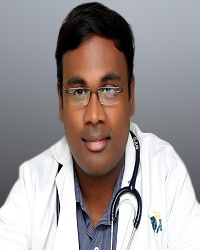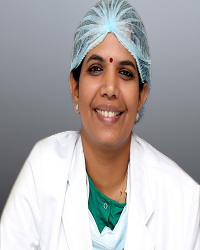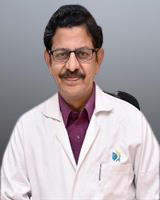Search Result: 4

Dr Arul Sundaresh Kumar L
M.B.B.S.,MS(ENT)
Registration No
900200
Language
English, हिंदी, தமிழ்

22 years experience overall

KK Nagar , Madurai
MON- SAT, MON- SAT(02:00 PM-03:00 PM)

Dr Arun Prabhu Ganeshan G
MBBS,MSENT,Head & Neck Surgery(Mumbai), Fellowship in Endoscopic Sinus and Skull Base Surgery.(Mumbai)
Registration No
178853
Language
English, हिंदी, मराठी, தமிழ்

12 years experience overall

KK Nagar , Madurai
MON, WED- SAT, MON, WED- SAT(10:00 AM-02:00 PM)

Dr Meena Priyadarshini P
MBBS,DNB(ENT),DLO
Registration No
30930
Language
English, हिंदी, தமிழ்

22 years experience overall

KK Nagar , Madurai
MON- SAT, MON- SAT(11:30 AM-05:00 PM)

Dr Pragatheswaran A
MBBS., DLO, FIAMS, MBA (Hospital Admin)
Registration No
2756945
Language
English, தமிழ்

35 years experience overall

KK Nagar , Madurai
MON- FRI, MON- FRI(01:00 PM-02:30 PM)
Frequently Asked Questions for Parotidectomy in Madurai
The two common types of incisions used in parotidectomy are the preauricular and the modified Blair incision. The preauricular incision is made in front of the ear and extends into the hairline. The modified Blair incision starts from the front of the earlobe and extends below the jawline. It provides better access for deep-seated tumours.
In some cases, a parotid tumour can recur after a parotidectomy. The likelihood of recurrence depends on various factors, including the type of tumour and its characteristics.
After a parotidectomy, the remaining salivary glands in the mouth produce saliva. However, there may be a temporary decrease in saliva production immediately after surgery. Over time, the remaining glands compensate, and saliva production returns to normal or near-normal levels.
Frey’s syndrome is a condition that can occur after parotidectomy. It involves abnormal sweating and flushing on the face while eating due to nerve damage during surgery. In this condition, the auriculotemporal nerve is damaged typically after surgical trauma to the parotid gland.
During a parotidectomy, there is a risk of damaging the facial nerve that controls the movement of facial muscles. However, experienced surgeons take precautions to preserve nerve function and minimize the risk of facial paralysis.
The risk of facial paralysis after parotidectomy varies depending on multiple factors. However, with skilled surgeons and advanced techniques, the rate of permanent facial paralysis is low. Temporary weakness or paralysis may occur initially but often resolves over time.
The duration of a parotidectomy surgery can vary depending on the case’s complexity. On average, the procedure takes about 2 to 4 hours to complete.
Your doctor determines the eligibility for parotidectomy based on overall health, the size and location of the tumour, and any other medical conditions. A thorough evaluation will be done to assess the risks and benefits of the surgery.
Before undergoing a parotidectomy, your doctor will provide specific instructions for preparation. This may include avoiding certain medications that can increase bleeding risk, fasting before surgery, and arranging transportation to and from the hospital.
After parotidectomy, you may experience swelling, pain, and difficulty opening your mouth for a few days. Your doctor will prescribe pain medications and provide instructions on wound care, diet, and physical activity restrictions. They may also schedule follow-up visits to monitor your progress.
The success rate of parotidectomy depends on various factors, such as the underlying condition being treated and the surgeon’s expertise. Generally, parotidectomy has a high success rate and is considered a safe and effective procedure.
The recovery time for parotidectomy varies from person to person. It takes about one to two weeks to recover from the surgery in general. However, it may take several months for all the post-operative symptoms to completely resolve.
The two types of parotidectomy are superficial and total parotidectomy. In superficial parotidectomy, only the outer part of the parotid gland is removed. Total parotidectomy removes the entire parotid gland, including its outer and inner elements.
Parotidectomy is a procedure aimed at removing the parotid gland, the largest salivary gland located in front of the ear. This procedure usually treats tumours or other conditions affecting the parotid gland.
A parotidectomy is typically performed by an ENT (Ear, Nose, and Throat) surgeon or a head and neck surgeon. These specialists have the expertise and experience in performing surgeries related to the head and neck region.
Related Procedures in Madurai
- Doctors for Laryngoscopy in Madurai
- Doctors for Septoplasty in Madurai
- Doctors for Tonsillectomy in Madurai
- Doctors for Tympanoplasty in Madurai
- Doctors for Tympanomastoidectomy in Madurai
- Doctors for Tracheostomy in Madurai
- Doctors for Cochlear Implant in Madurai
- Doctors for Adenoidectomy in Madurai
- Doctors for Myringoplasty in Madurai
- Doctors for Laryngectomy in Madurai
- Doctors for Stapedectomy in Madurai
- Doctors for Parotidectomy in Madurai
- Doctors for Functional Endoscopic Sinus Surgery in Madurai
- Doctors for Ear tubes in Madurai
Other Specialities in Madurai
- Best Urologist in Madurai
- Best Pulmonologist in Madurai
- Best General Physician in Madurai
- Best Endocrinologist in Madurai
- Best Cardiologist in Madurai
- Best Oncologist in Madurai
- Best Radiologist in Madurai
- Best Orthopedics in Madurai
- Best Hepatologist in Madurai
- Best Gynecologist in Madurai
- Best Dermatologist in Madurai
- Best Gastroenterologist in Madurai
- Best Psychologist in Madurai
- Best Ent Specialist in Madurai
- Best Nephrologist in Madurai
- Best Rheumatologist in Madurai
- Best Diabetologist in Madurai
- Best Psychiatrist in Madurai
- Best Neonatologist in Madurai
- Best Dentist in Madurai
- Best Dietitian in Madurai
- Best Haematologist in Madurai
- Best Pediatrics in Madurai
- Best General Surgeon in Madurai
Top Hospitals in India
- Hospitals in Ahmedabad
- Hospitals in Bangalore
- Hospitals in Bhubaneswar
- Hospitals in Bilaspur
- Hospitals in Chennai
- Hospitals in Delhi
- Hospitals in Guwahati
- Hospitals in Hyderabad
- Hospitals in Indore
- Hospitals in Kolkata
- Hospitals in Madurai
- Hospitals in Mumbai
- Hospitals in Mysore
- Hospitals in Nashik
- Hospitals in Noida
- Hospitals in Visakhapatnam
- Hospitals in Lucknow
- Hospitals in Bhopal
- Hospitals in Karur
- Hospitals in Kochi
- Hospitals in Nellore
- Hospitals in Trichy
- Hospitals in Kakinada
© Copyright 2024. Apollo Hospitals Group. All Rights Reserved.




 Call Now
Call Now




